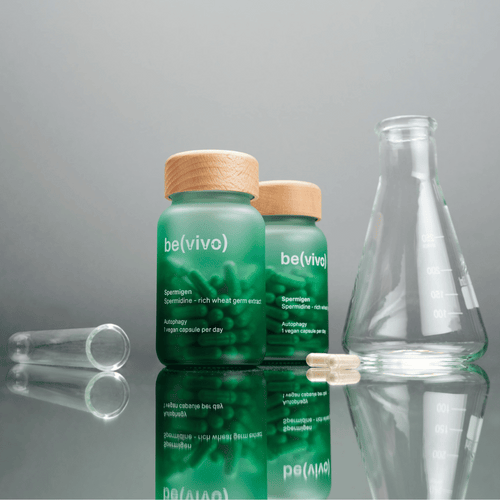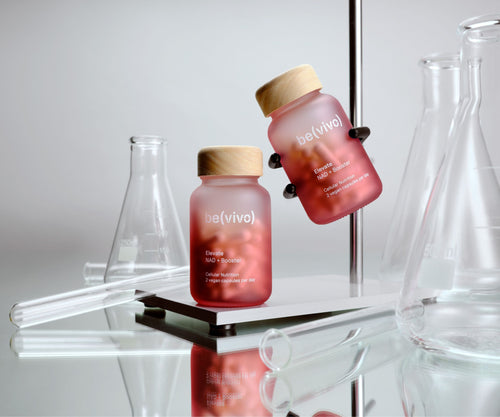How Can Spermidine Enhance Anti-Aging?
In the world of longevity and biohacking—where people use science-backed strategies to feel and perform at their best—spermidine has become a standout. Naturally found in both our own cells and in plants, spermidine helps power autophagy, the body’s built-in “cellular clean-up” process, which is key for slowing aging.
In this article, we’ll break down what spermidine is, how it works, and why adding it to your routine—through foods or supplements like be(vivo) Spermigen - could be one of the smartest longevity choices you make.
A naturally occurring compound
Spermidine is a naturally occurring compound that helps your body recycle old, damaged cell components and replace them with fresh, healthy ones. This cellular renewal supports brain health, metabolism, and overall vitality. Supplementing with spermidine can be a practical way to get the benefits of fasting—without having to change your diet dramatically.
What Are Polyamines and Why Do They Matter?
Polyamines are small organic compounds found in every living cell. The three most important are putrescine, spermine, and spermidine. They help regulate cell growth, DNA repair, protein synthesis, and overall cellular health.
As we age, our natural spermidine levels decline. This slowdown affects the body’s ability to repair itself, leading to common signs of aging like slower recovery, reduced energy, and skin changes.

Where Spermidine Comes From
The name “spermidine” comes from its first discovery in semen in the 1600s, but don’t let that distract you—it’s abundant in many foods, especially wheat germ, soybeans, mushrooms, and aged cheese.
Around age 60, natural production drops sharply. That’s why supplementation with a concentrated, plant-based source like be(vivo) Spermigen can be so valuable.
How Spermidine Supports Anti-Aging
Spermidine’s main anti-aging magic lies in its ability to activate autophagy—your body’s way of removing damaged cell parts and replacing them with new, functional ones.
Research suggests spermidine may:
-
Support brain health by helping clear out toxic protein build-up linked to cognitive decline.
-
Protect cardiovascular function by improving arterial flexibility and supporting heart cell renewal.
-
Help maintain cellular energy by supporting mitochondrial health.
-
Reduce inflammation, which plays a role in many age-related diseases.
Spermidine and Autophagy
Autophagy literally means “self-eating” in Greek. Think of it as cellular housekeeping—clearing out waste so everything works better. When autophagy slows with age, cellular waste builds up, increasing the risk of chronic disease.
Spermidine works as a “caloric restriction mimetic”—it triggers many of the same beneficial pathways as fasting, without requiring you to skip meals.

Beyond Fasting: Why Supplements Make Sense
While you can increase spermidine through diet, reaching the same levels used in research can be challenging. That’s where be(vivo) Spermigen comes in- delivering a precise, daily dose of 100% natural, wheat germ–derived spermidine, combined with zinc and folic acid for extra cell support.
Top Food Sources of Spermidine
-
Wheat germ (243 mg/kg)
-
Dried soybeans (207 mg/kg)
-
Aged cheddar (199 mg/kg)
-
Pumpkin seeds (104 mg/kg)
-
Natto, lentils, broccoli, peas, mushroom

Is Spermidine Safe?
Yes - research shows plant-based spermidine supplements are well tolerated. However, if you have medical conditions or take medications, it’s always wise to consult your healthcare provider first.
The Bottom Line
Spermidine is one of the most promising longevity compounds we know of today. By supporting cellular renewal, brain health, and cardiovascular function, it may help you not just live longer—but live better.
Whether through diet or supplementation, maintaining healthy spermidine levels is a smart biohacking strategy. And for a convenient, high-quality source, be(vivo) Spermigen offers an easy way to give your cells what they need—every single day.








